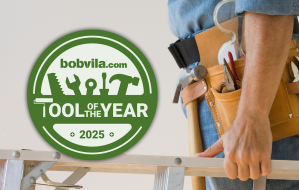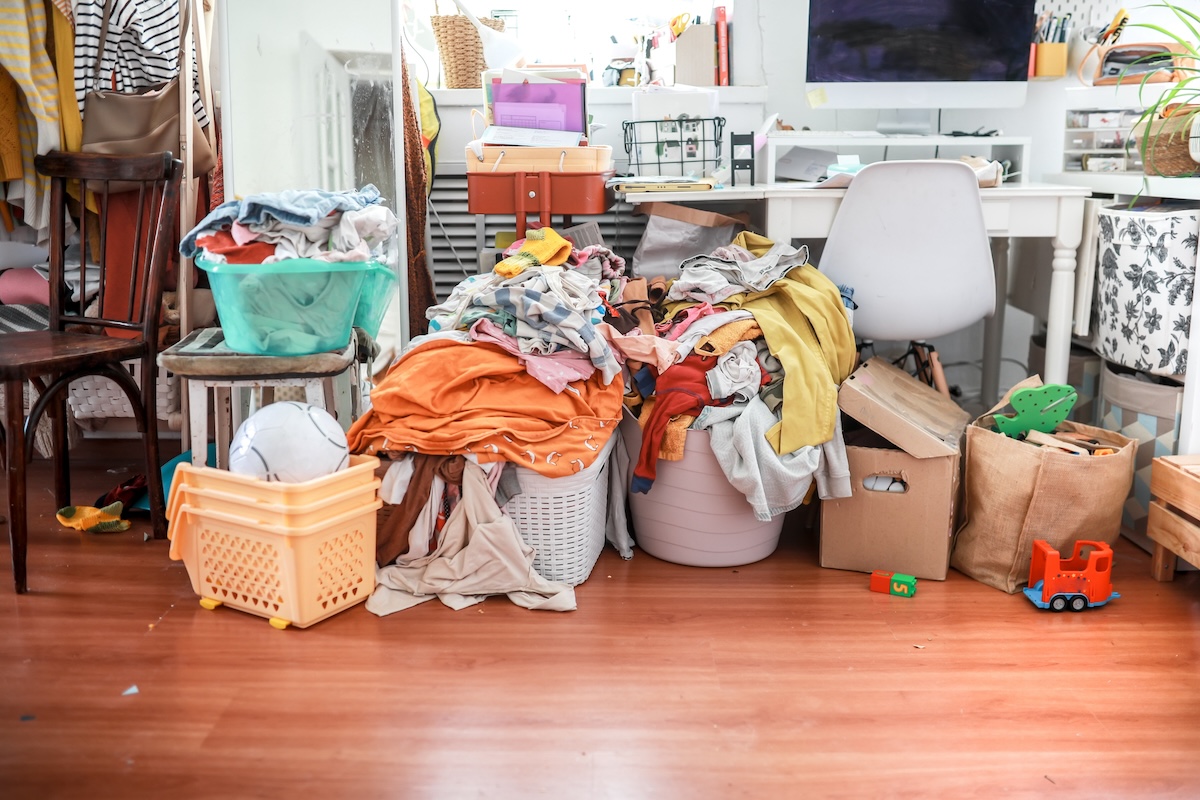

We may earn revenue from the products available on this page and participate in affiliate programs. Learn More ›
Are you sick and tired of clutter taking over your space? You are not alone. Half of Americans have at least one room in their home that they believe is unsalvageable due to clutter, according to new research conducted by Talker Research for The Container Store.
Determining what is clutter to you may be different than to someone else, but it can still cause an array of problems once it builds up in your home. Messy homes can leave us feeling anxious, helpless, overwhelmed, embarrassed, ashamed, and/or guilty. It can also distract us, overstimulate our mind, overload our senses, and make it very difficult to relax both physically and mentally. Plus, it’s just so frustrating when we can’t find what we need. According to one study, Americans spend 2.5 days per year looking for misplaced items.
All of this can make it harder to concentrate and even sleep at night, not to mention the conflicts it can stir up with everyone in the home. Learn more about Americans’ relationship with clutter and how you can address your own clutter with some simple organizing tips.
A common concern is the amount of space in the home.
A third of Talker Research survey respondents said that they feel cramped in their homes, especially those who live in apartments. Interestingly, most of the people who are unhappy with the amount of space they have admitted they knew it was an issue when they moved into their home. Many also wish they had at least three more rooms in their home in order to feel more comfortable and to manage all their belongings. The top choices to expand their home include wanting a larger bedroom and larger kitchen.
When it comes to managing space, the most common challenge people face is effectively organizing their closets. Others complained how they have items that don’t fit in the space reserved for them, such as shoes for a bedroom closet, or they simply can’t find room for belongings because they don’t have a designated area set aside for them.
But The Container Store wants customers to understand that there are solutions available. It’s all about tapping into smart tricks to maximize the space, such as utilizing the back of the door with a hanging door rack, making use of space under a bed with an underbed drawer, or upcycling common items to serve as creative storage space.
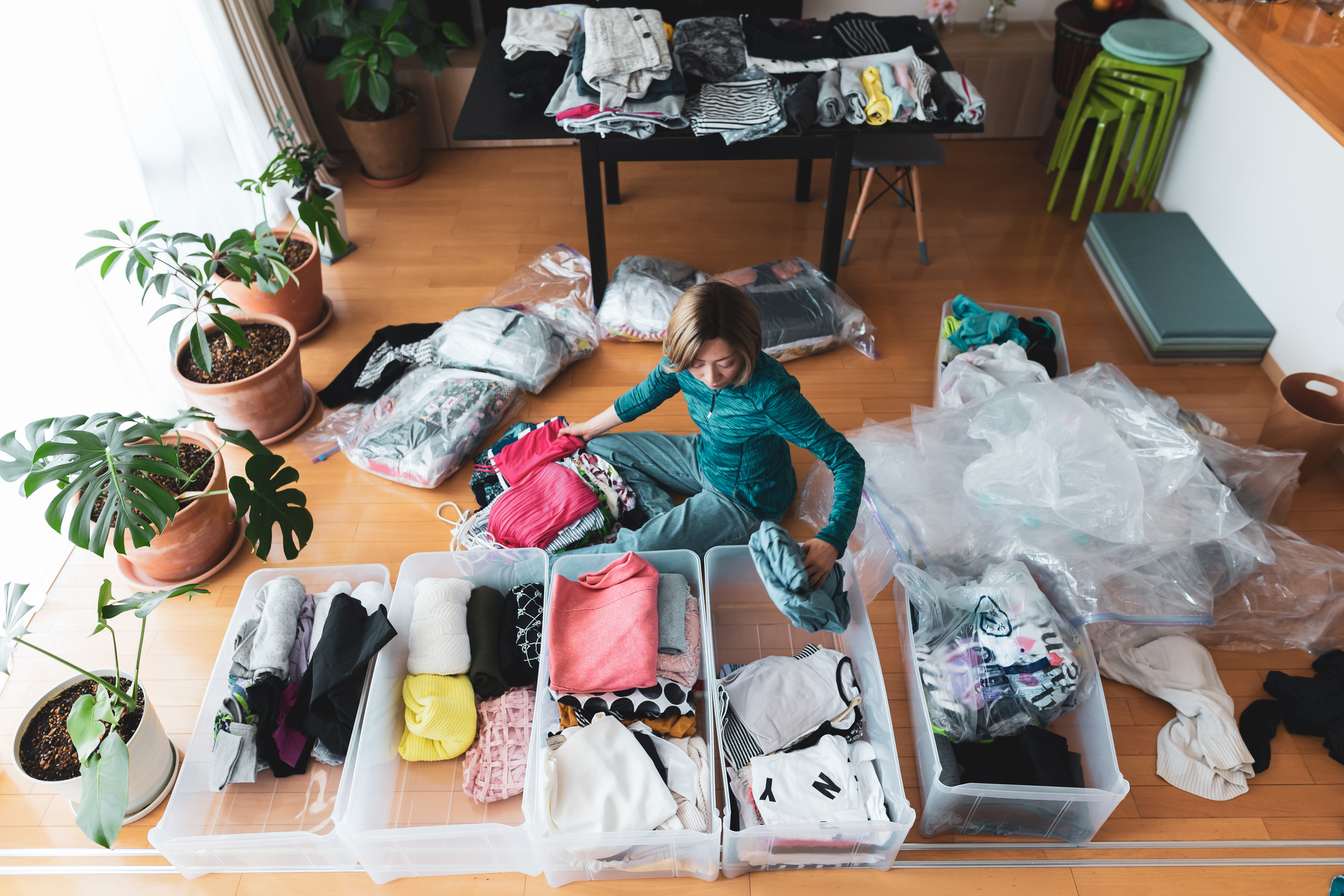
People purge clutter more often than expected.
How often do you set aside time to clean out your home and get rid of clutter? According to the survey, the average person takes part in three major cleanouts every year, and nearly a third do so more often. So, you no longer need to wait for spring cleaning—you can tackle that clutter anytime you start to feel overwhelmed throughout the year. Respondents explained that they address clutter fairly often because they simply can’t stand it and work hard to find a designated space for every item lying around in their home.
Certain rooms are tougher to organize than others.
Each area of a home comes with its challenges, but some rooms are harder to keep tidy than others. The survey indicated that homeowners find organizing their kitchen and garage more challenging than other rooms. However, the easiest rooms to organize tend to be the living room, bedroom, and bathrooms.
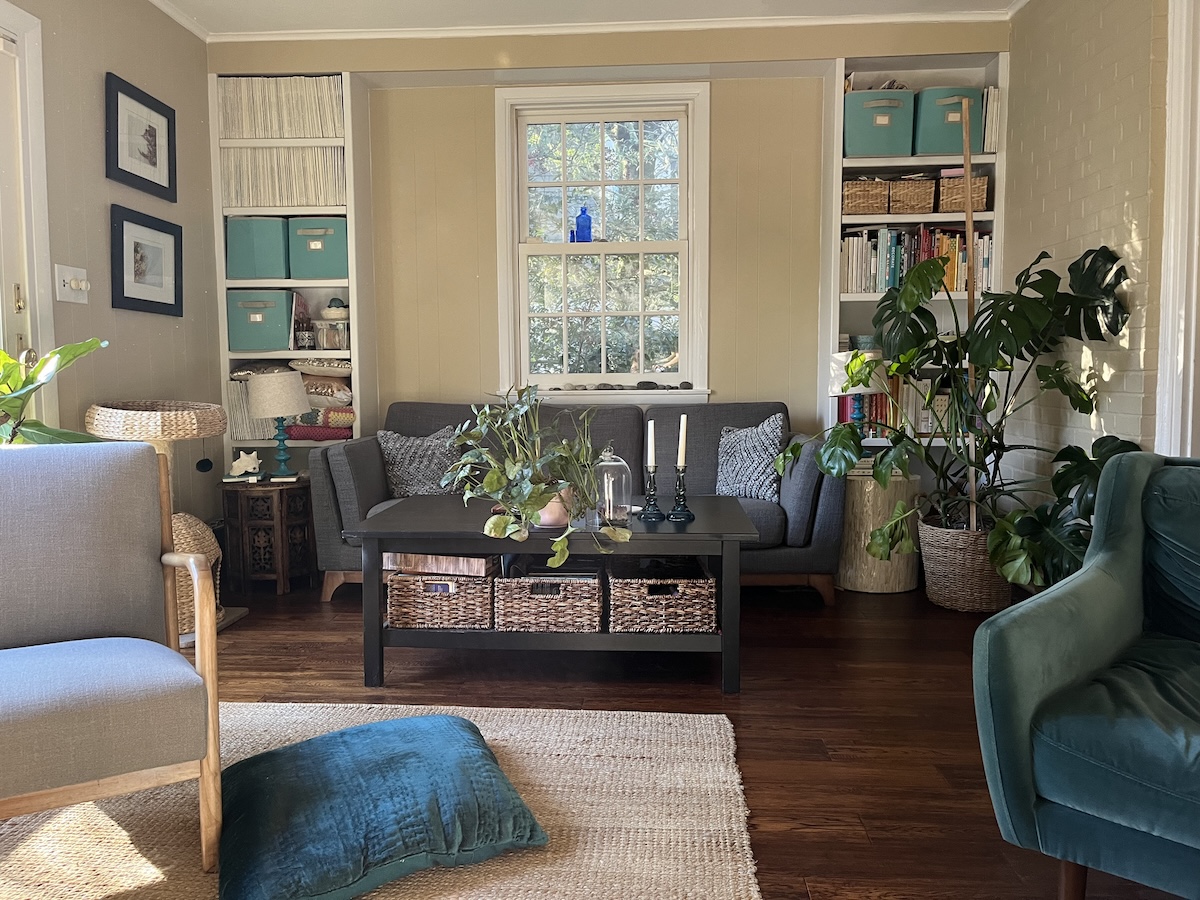
Some items are harder to let go of.
It may be easier to donate some used books than clothes taking up space in your closet that you rarely wear, according to the survey. While respondents said they would be able to part with an average of 30 percent of the items in their home, more than half wish they didn’t have to throw out items to find enough space.
Here are the objects that Americans have the most difficult time removing:
- Clothes (29 percent)
- Kitchen equipment (21 percent)
- Hobby items (16 percent)
- Shoes (13 percent)
- Groceries/food items (13 percent)
- Furniture (13 percent)
- Seasonal decor (12 percent)
- Memorabilia (12 percent)
- Random/one-off items (12 percent)
- Books (11 percent)
Try these helpful decluttering hacks from survey respondents:
The survey was also beneficial in bringing some decluttering tips and tricks to the forefront. Many have taken on the challenge to tap into their creativity to tackle clutter in their home. Here are some of the best ideas they shared:
- When you purchase something new, get rid of one thing to even it out.
- Choose furniture with built-in storage, such as ottomans and benches with hidden compartments to store items.
- Utilize vertical space, such as installing a loft bed to allow space for a desk or storage underneath.
- Add shelving in closets, on walls, and in the garage.
- Store related items in over-the-door shoe holders.
- Hang hammocks from the ceiling to store toys and stuffed animals in kids’ bedrooms or a playroom.
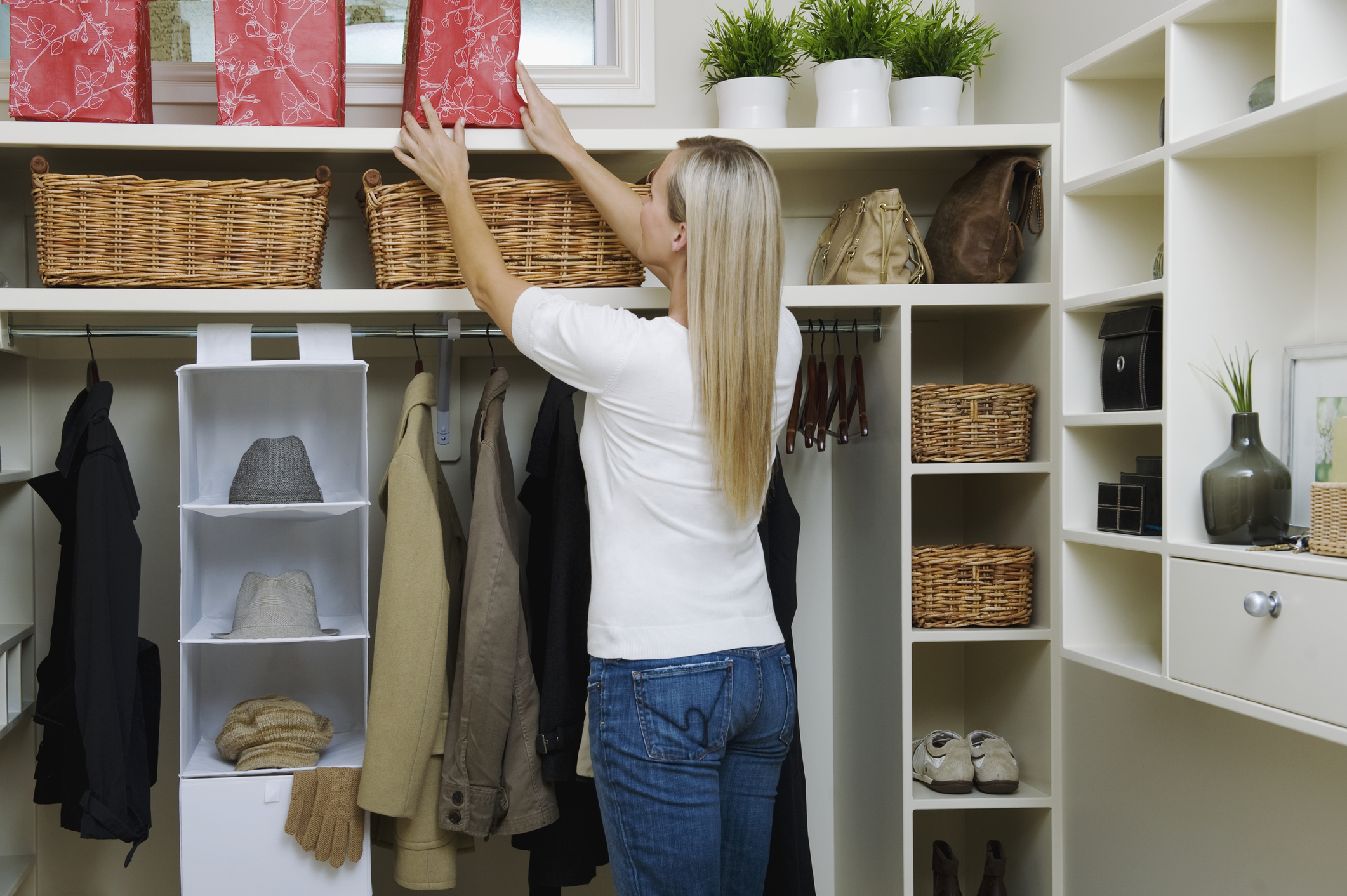
More DIY Tips for organizing and decluttering:
Whether you decide to take a minimalist approach or go all-in with your clutter by using it as décor—as the cluttercore trend touts—here are some additional ways for you to get organized without bringing in a pro, although that is an option as well.
- Repurpose baskets you receive as gifts to use as attractive storage bins.
- Put up a pegboard with hooks to organize items visually, such as jewelry, photographs, or arts and crafts supplies.
- Use shower curtain rings to hang all sorts of items in your bedroom closet, such as scarves, handbags, belts, and ties. They are also helpful for hanging dish rags and towels in the kitchen.
- Save glass jars to store loose items, whether it be office supplies or loose screws, nails, and bolts in the garage, etc.
- Keep your drawers organized by using cereal boxes. Cut off the base of an empty cereal box and then wrap it with decorative paper.
- Reuse glass candle jars in the bathroom to store cotton swabs, cosmetics, and hair ties.
- Keep old cabinet hardware to use as hooks for belts, ties, and other items.
- Buy some lazy Susans to utilize dead space in the pantry and other storage areas.
- Keep your shopping bags in order using old office file holders.
- Breathe new life into your clutter by turning to cluttercore design. Display sentimental pieces in an intentional, eclectic way using a gallery wall, bookshelves, or decorative bins.
